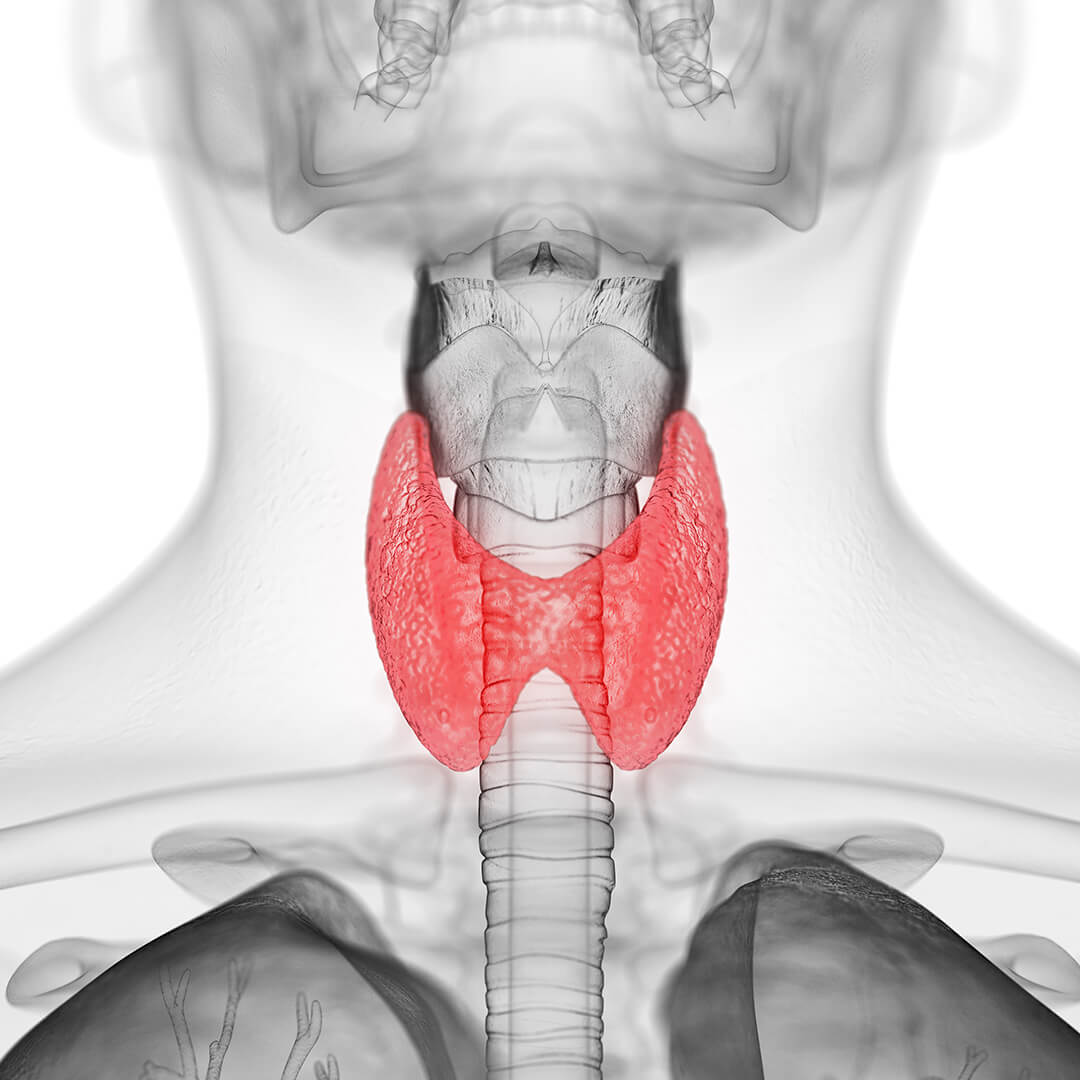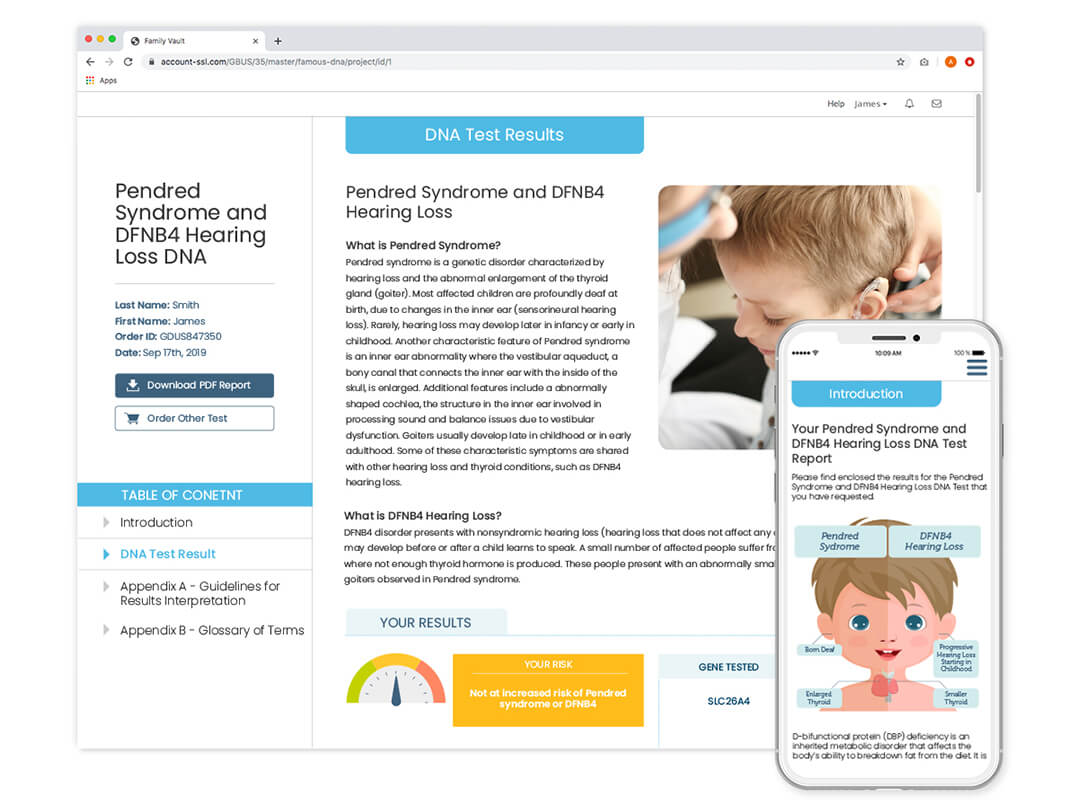Pendred Syndrome and DFNB4 Hearing Loss
Are you a genetic carrier for a disorder linked to early hearing loss? Find out with this DNA Test.
- Detects six SLC26A4 variants linked to Pendred syndrome and DFNB4 hearing oss
- Carrier screening test intended for couples who are planning to become pregnant
- Determine if your child is at risk of hearing loss and thyroid abnormalities
- 100% private and confidential online results
Already have DNA markers? Sign in and upload your data to view results.
Need to take the DNA Test? Order our easy-to-use swab kit.
Detailed Description
Pendred syndrome is a genetic disorder characterized by hearing loss and the abnormal enlargement of the thyroid gland (goiter). Most affected children are profoundly deaf at birth, due to changes in the inner ear where the vestibular aqueduct, a bony canal that connects the inner ear with the inside of the skull, is enlarged.
DFNB4 hearing loss presents with hearing loss that does not affect any other parts of the body, which may develop before or after a child learns to speak. A small number of affected people also suffer from congenital hyporthyroidism, where not enough thyroid hormone is produced.
Both disorders are caused by genetic variation in the SLC26A4 gene, which gives instructions to produce the pendrin protein.
Take this test to find out whether you are a genetic carrier for SLC26A4 variants and are at risk of passing it to your children. This is intended to be a carrier screening test for couples who are considering to start a family.

The Genetics
Pendered syndrome and DBNF hearing loss are caused by genetic variation in the SLC26A gene, which gives instructions to produce the pendrin protein. Pendrin is a transporter found on the surface of cells responsible for moving negatively charged molecules (ions) like chloride, iodide and bicarbonate into cells. It plays an essential role in maintaining proper ion levels in both the thyroid and the inner ear. In people with SLC26A4 variants the structure and/or the function of pendrin is impaired, which disrupts ion transport. This imbalance in ions affects the development of the inner ear and affects the function of the thyroid gland.
Pendred syndrome and DFNB4 hearing loss are inherited in an autosomal recessive pattern, which means two defective copies of the SLC26A4 gene must be inherited by an affected individual for symptoms to manifest.
Variants Tested
This test looks at six variants of SLC26A4, which detects between 13-16% of carriers of Pendred syndrome and DFNB4 hearing loss in people of European descent and 35-45% of Japanese carriers with the two disorders..
- rs80338848
- rs111033244
- rs28939086
- rs111033199
- rs121908362
- rs111033307
Understanding your carrier status for these variants will help you understand the risk of passing it to your children.
While it provides a risk analysis for these conditions, it may be necessary to use genome sequencing tests, as additional genetic variants are linked to Pendred syndrome and DFNB4 hearing loss.
Signs & Symptoms
Symptoms of Pendred syndrome
- Hearing loss
- Enlarged thyroid gland (goiter)
- Poor balance
- Enlarged vestibular aqueduct
- Cochlear hypoplasia
Symptoms of DBNF4 hearing loss
- Nonsyndromic hearing loss
- Enlarged vestibular aqueduct
- Congenital hypothyroidism
How It Works
Step 1: Sign up for a free Genebase account.
Step 2: Upload your DNA markers to Genebase.
Step 3: Login to your account to access your results when they are ready.


